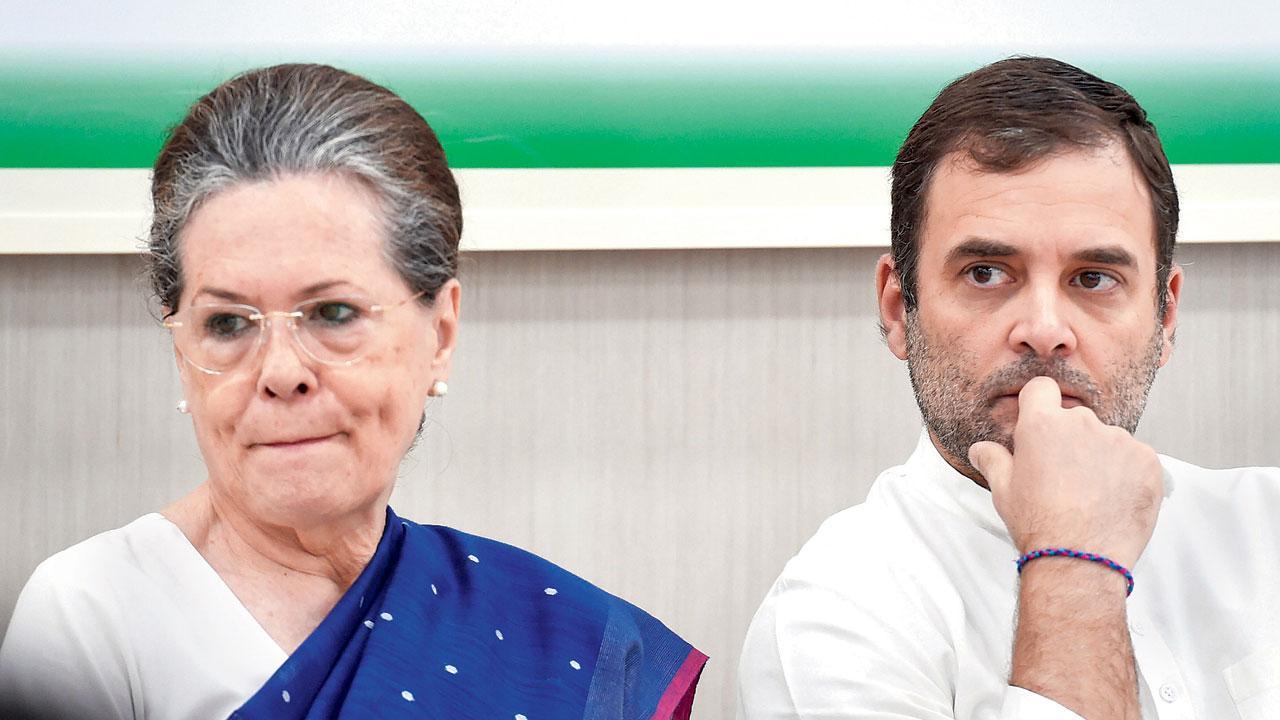Local body bypoll results will impact the strategic approach of the parties that will go to mini Assembly polls next year

For various polls next year, Congress party seniors feel, there could be selective alliances if it really wants to grow and salvage the lost pride. File pic/PTI
 While it is dubbed as a weakling in the Maha Vikas Aghadi, the Congress had an opportunity to flex its muscles, thanks to the local body bypoll results in six districts. Contrary to popular expectation, the century-old party gave the single largest party, the Bharatiya Janata Party (BJP), a neck-and-neck fight, winning the maximum numbers among the MVA partners. In fact, it won more seats than the BJP in the panchayat samitis, even as it fell short of a few to match BJP numbers in the zilla parishad polls.
While it is dubbed as a weakling in the Maha Vikas Aghadi, the Congress had an opportunity to flex its muscles, thanks to the local body bypoll results in six districts. Contrary to popular expectation, the century-old party gave the single largest party, the Bharatiya Janata Party (BJP), a neck-and-neck fight, winning the maximum numbers among the MVA partners. In fact, it won more seats than the BJP in the panchayat samitis, even as it fell short of a few to match BJP numbers in the zilla parishad polls.
ADVERTISEMENT
For non-starters, the Zilla Parishad segments are bigger than the panchayat samiti ones. Both are essentially rural segments, where the Congress, fighting against the BJP and MVA partners, has retained the seats and won some more than in the regular polls that were held after the MVA came to power in a dramatic manner, with the sole purpose of stopping the BJP in its tracks. The bypolls did not change the power equations in the six districts, but created concerns for the BJP which will be trying to retain power next year in the majority local bodies that it had won when in power between 2014 and 2019.
The Congress, which suffered its biggest losses in the past seven years in Maharashtra where it was founded and flourished to make successive party governments in the Centre and state for many decades, is enthused, and likely to be more aggressive as far as the BJP and its ruling partners are concerned. Despite the MVA getting an unbeatable number of seats in the bypolls, chances are that the Congress may not join hands with the ruling partners next year when 23 of 27 municipal corporations, 27 of 36 zilla parishads, 300 of 362 municipal panchayats and more than 290 panchayat samitis go to polls. At the most, there could be selective alliances, say party seniors who have been increasingly advocating the fight independent of the MVA allies, if the party really wants to grow and salvage lost pride. They cannot be taken for granted anymore by the opposition as well as the ruling partners, feel the Congress leaders.
The MVA disintegration during the Mini-Assembly polls would mean an advantage for the BJP, though it could be trading on slippery ground in some places because of local factors and infighting within. In the recent by-polls, it failed to retain seats because the warring loyalists and turncoats did not call a truce. Next year’s bigger canvas is expected to have excessive infighting in the BJP. Several BJP leaders have daggers drawn and are anxious to settle a score with their adversaries, be it the ‘original’ or the ‘exports’. In perennial election mode, the BJP has been working since long on customising the design for each local body. Making it all-proof isn’t possible, as long as the party doesn’t get the sense of what could be in store when the contests are decided and fought.
For Shiv Sena, the state’s leading party in the government, the ZPs didn’t bring much strength, but the samitis earned a significant number. The BJP blamed the Sena for allowing the gains (by making a tripartite government) for the other two partners, especially the Congress, the party the Narendra Modi-led party has vowed to vanquish from the Indian landscape. The Congress said the outcome was the beginning of its resurgence because the people believed it ‘alone’ can fight the BJP’s might. No wonder, the Sena has already made up its mind to go solo where it doesn’t need crutches. The battle ground awaits the contesting parties that will be out to prove who holds sway over the voting population. Generally, the ruling parties have been topping the local body results, but the BJP has made an exception in the bypolls, and would like to repeat the feat next year as well.
The Supreme Court’s decision of scrapping the other backward class (OBC) quota necessitated the bypolls. The contests were held in the open category, but the parties ensured that only the OBC candidates were fielded. The BJP and ruling parties have traded barbs over the issue, which will be resolved if no further legal hassles hit the ordinances that have been promulgated to restore the OBC quota. The municipal corporations, except Mumbai, will have their civic wards redrawn to make it multi-member. The exercise is expected to take time because the local governments had already started restructuring to make it a one-member ward system. And another factor that holds the key to not delaying the elections scheduled to be held in instalments in the first half of 2022 will be the improvement in the Covid-19 situation, especially in the urban areas that are getting a significant number of positive cases, with a third wave threat still looming large.
Dharmendra Jore is political editor, mid-day. He tweets @dharmendrajore
Send your feedback to [email protected]
 Subscribe today by clicking the link and stay updated with the latest news!" Click here!
Subscribe today by clicking the link and stay updated with the latest news!" Click here!







